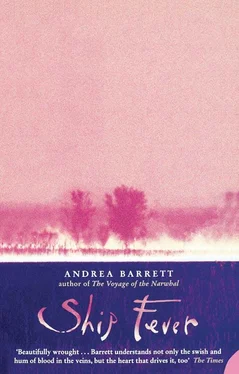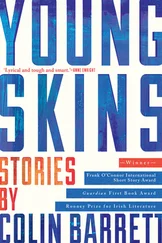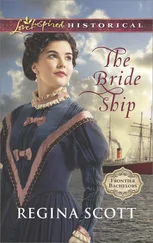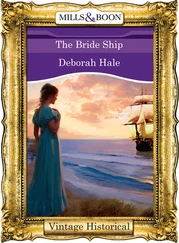But she had lost the baby. Afterwards, she had wanted to move; her grief had been outrageous, excessive, and she’d told Joel that the sight of the house where she’d lost their child was unbearable to her. She had been hysterical. She had blamed the long flights, the altitude of Portillo, the injections with which Dr. Sepulveda had cured her of soroche. She had blamed Joel for the pleasure he’d taken in skiing and Rob and Alicia for the way they’d stared at her barely thickened waist.
She had written to Dr. Sepulveda, remembering his pointed tales but forgetting the image of her he held captive in his camera. What did you mean by those stories ? she’d scrawled. What am I supposed to do?
He never answered, or she believed that he’d never answered. For years she’d imagined him baffled by her failure to understand that the link between her and Jemmy Button was specious, only a surface resemblance: Jemmy had had no choice. But she had always seen that, as clearly as she could see her lost child in the toddler Marianna held in her lap. She had simply not known what to do with the knowledge.
Marianna, still annoyed about Rob and Alicia’s absence, said, “Why do you even bother with them when they treat you like this?”
Zaga watched her youngest brother put together a kite for his son and then struggle to launch it. “I don’t know,” she answered. “Joel would have wanted me to.” It seemed impossible to admit that all the years she’d spent with them had not forged a connection strong enough to survive Joel’s death.
Joel had led her through their house after she lost their baby, pointing out the peach curtains she’d hung in Alicia’s room, the built-in desk she’d had made for Rob. The children’s mother was staying in France, he said. She wasn’t coming back. Then he asked her if she couldn’t be happy raising Rob and Alicia as their own. “It’s too late,” he said. “I’m too old to go through this again.” Tired and heartsore she’d bent to his wish, the way one of her grandmothers might have bent to life in her new country. No one had consulted Alicia or Rob.
The kite had a body of lightweight blue nylon and a red tail that spun like a pinwheel. “Bird,” said the baby in Marianna’s lap, pointing at the kite as it rose. A string of children trailed Zaga’s brother, his two grade-schoolers mingled with the toddlers produced by her oldest brother’s son. It seemed impossible that she should have a brother who was a grandfather. Impossible that everyone in this family had children but her and that all of them could grow up without her help.
Birds with No Feet [Fire—1853]
There was no breeze that night. The sea, lit by the full moon, shone smooth and silver; the Southern Cross turned above the ship and below it squid slipped invisibly through the depths. Between sky and sea lay Alec Carrière, sprawled like a starfish in his hammock and imagining how the treasures packed in the holds were about to change his life.
Beetles and butterflies and spiders and moths, bird skins and snakeskins and bones: these were what he’d collected along the Amazon and then guarded against the omnivorous ants. Mr. Barton, his agent back home in Philadelphia, had sold Alec’s first specimens for a good price, and Alec expected this shipment would finally set him free to pursue his studies in peace. He was a few months shy of twenty-one, and dreaming a young man’s dreams.
Until he’d sailed for the Amazon, he’d worked in a shop making leather valises, not far from the tavern his parents ran in Germantown. But like the young English collector he’d met in Barra, near the flooded islands of the Rio Negro, he’d been saved from a squalid and unremarkable life by a few kind men and a book. With his uncle’s ornithology text in his pocket he’d wandered the banks of the Wissahickon, teaching himself the names of birds and imagining wild places. His brother Frank had taught him to shoot, and behind the outhouse he’d prepared his first clumsy skins and mounts. Even then he’d known that other naturalists had taught themselves their trade. Others had risen from just such humble beginnings, and he’d seen nothing extraordinary in his ambitions.
Once every few months he went into downtown Philadelphia to visit the Academy of Natural Sciences, where a few of the members corrected his malformed preparations and taught him what they could. His interests spread from birds to other species. Titian Peale showed him an excellent way to pin and display his moths. Two of the Wells brothers, Copernicus and Erasmus, taught him how to prepare skeletons. All this gave Alec great pleasure but annoyed his father; by the time he was sixteen his father was pressing him to abandon this childish hobby and take his work more seriously. He almost gave up. But in 1850 Peale made him a gift of William Edwards’s small and wonderful book, A Voyage Up the River Amazon.
When Alec read it a door seemed to open. What was there to keep him in Philadelphia? Edwards had been only a few years older than him when he’d set off; Alec was strong and healthy and his three brothers could look after their parents. And he had a most earnest desire to behold the luxuriant life of the tropics. Mr. Barton, a natural history auctioneer whom he’d met at the Academy, assured him that all of northern Brazil was little known, that Edwards had brought back only small collections, and that Alec might easily pay the expenses of his trip by gathering birds, small mammals, land-shells, and all the orders of insects. Among the wealthy, Mr. Barton said, glass cases filled with tropical creatures arranged by genus or poised in tableaux were wildly fashionable. And so few specimens had reached North America from the Amazon that high prices were guaranteed.
With the brashness of youth Alec wrote to Mr. Edwards himself, who provided him with letters of introduction to several traders. Then he packed his things and used his small savings to book passage on a merchant ship. His father was angry with him; his mother wept. But he saw miracles.
The mouth of the Amazon was like a sea, and could be distinguished from the ocean only by its extraordinary deep-yellow color. The Rio Negro was as black as the river Styx. Jet-black jaguars and massive turtle’s nests, agoutis and giant serpents; below Baião, a crowd of Indians gathered, laughing and curious, to watch Alec skinning parrots. Driven to gather as much as he could, Alec shrugged off the heat and the poor food and the fevers that plagued him intermittently. His persistence was rewarded in Barra, where Alfred Wallace greeted him like a brother.
Wallace wasn’t famous then. Except for the light that burned in him and lit a similar flame in Alec, he was just another collector, exceedingly tall, with a thatch of yellow hair and clothes as shabby as Alec’s own. On the day they met the sun dropped like a shot bird, and in the sudden tropical night they compared skins and guns.
Alec was lonely, and glad for the company after months among Indians whose language he couldn’t speak. He talked too much the night he met Wallace, he knew he did. But although Wallace was a decade older, wracked with fever and ready to leave for home after three hard years in the jungle, he never laughed at Alec’s chatter or made him feel less than an equal. He showed Alec the blow-pipes his Indian hunters used, and the bitter vegetable oil with which he coated the ropes of his specimen-drying racks. Alec showed him the glorious umbrella-birds he’d captured in the flooded forest of the igapo. Standing by the side of this long, lean, wasted man, Alec took pleasure in his own youth and compact sturdiness; how his hands, next to Wallace’s fine bones, were all broad palm and spatulate thumb. Around them the toucans yelped and the parrots chattered and the palms went swish, swish in the evening breeze. They ate fish and farinha and turtle. Later they traded stories about the books that had saved them. When Alec learned that Wallace was no gentleman scientist but was, like Alec himself, solely dependent on selling specimens to pay his way, he felt an immediate bond.
Читать дальше
Конец ознакомительного отрывка
Купить книгу












